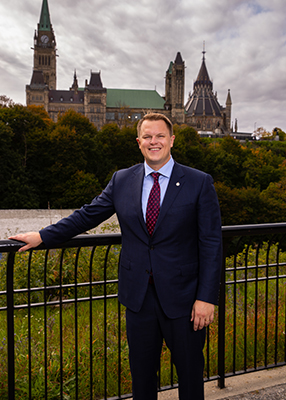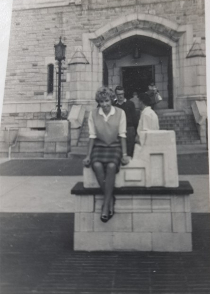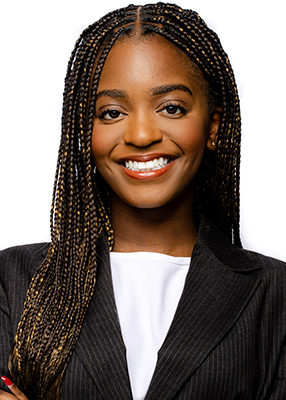Brad Vis

Why did you choose your program at UBC and what did you enjoy most about it?
I studied political science because I was interested in the relationship between individuals and institutions. I was inspired by many great faculty members like Professors Mauzy and Baier. Under the direction of Professor Mauzy, I researched how the Chinese government persecutes religious minorities. I still think back to that research when considering the current political climate. Professor Baier organized his federalism course around a ‘First Ministers’ student simulation. It was the best academic experience of my life.
What were some of your most meaningful experiences at UBC?
My best memories of UBC were making lifelong friends and sharing our education journey together. I learned a lot drinking coffee and beer with intelligent people. I also enjoyed playing ultimate frisbee intramurals.
What choices did you make at UBC that contributed to your career success / journey?
At UBC I committed to excellence. It’s a competitive institution and I had to push hard to keep up with my brilliant classmates.
What was your first job after graduation and what other jobs did you have before your current position?
I was a Junior Analyst in the Public Service of Canada I also served in many roles as a political aide and as a business associate for an agri-business company. What was really important, though, were the jobs I had while studying and in the summers between semesters: cleaning stinky dorm rooms at Gage Towers; working in food service; student gigs at Koerner Library; and building maintenance, to name a few. These jobs shaped my character and equipped me to pursue professional positions with enthusiasm.
Is your current career path as you originally intended? What challenges did you face in launching your career?
I was in my mid-twenties when I understood politicians were normal people. Once I figured that out, I decided I would go for it. There are many indirect financial costs involved in running for office that were a pretty big impediment to getting elected. I also had to lose (2015 General Election) before winning.
What do you like about your current job and what do you find challenging? How does it relate to your degree?
I love presenting petitions in Parliament on behalf of my constituents and other Canadians. Petitions give Canadians the opportunity to have their perspectives and points of view shared on the national stage.
From your experience, what has been the value of having an Arts degree?
My Arts degree gave me a strong foundation in research methods. I can’t state enough how much that has helped me pursue a career in politics.
What advice would you give to students and alumni interested in breaking into your industry?
The ability to read and interpret basic data sets will set you apart from other young professionals. Modern politics is predicated on knowing what people think and responding to it.
What advice would you give your graduating self?
“He who guards his lips guards his life but he who speaks rashly will come to ruin.” – Proverbs 13:3
Brad Vis



Why did you choose your program at UBC and what did you enjoy most about it?
I studied political science because I was interested in the relationship between individuals and institutions. I was inspired by many great faculty members like Professors Mauzy and Baier. Under the direction of Professor Mauzy, I researched how the Chinese government persecutes religious minorities. I still think back to that research when considering the current political climate. Professor Baier organized his federalism course around a ‘First Ministers’ student simulation. It was the best academic experience of my life.
What were some of your most meaningful experiences at UBC?
My best memories of UBC were making lifelong friends and sharing our education journey together. I learned a lot drinking coffee and beer with intelligent people. I also enjoyed playing ultimate frisbee intramurals.
What choices did you make at UBC that contributed to your career success / journey?
At UBC I committed to excellence. It’s a competitive institution and I had to push hard to keep up with my brilliant classmates.
What was your first job after graduation and what other jobs did you have before your current position?
I was a Junior Analyst in the Public Service of Canada I also served in many roles as a political aide and as a business associate for an agri-business company. What was really important, though, were the jobs I had while studying and in the summers between semesters: cleaning stinky dorm rooms at Gage Towers; working in food service; student gigs at Koerner Library; and building maintenance, to name a few. These jobs shaped my character and equipped me to pursue professional positions with enthusiasm.
Is your current career path as you originally intended? What challenges did you face in launching your career?
I was in my mid-twenties when I understood politicians were normal people. Once I figured that out, I decided I would go for it. There are many indirect financial costs involved in running for office that were a pretty big impediment to getting elected. I also had to lose (2015 General Election) before winning.
What do you like about your current job and what do you find challenging? How does it relate to your degree?
I love presenting petitions in Parliament on behalf of my constituents and other Canadians. Petitions give Canadians the opportunity to have their perspectives and points of view shared on the national stage.
From your experience, what has been the value of having an Arts degree?
My Arts degree gave me a strong foundation in research methods. I can’t state enough how much that has helped me pursue a career in politics.
What advice would you give to students and alumni interested in breaking into your industry?
The ability to read and interpret basic data sets will set you apart from other young professionals. Modern politics is predicated on knowing what people think and responding to it.
What advice would you give your graduating self?
“He who guards his lips guards his life but he who speaks rashly will come to ruin.” – Proverbs 13:3



